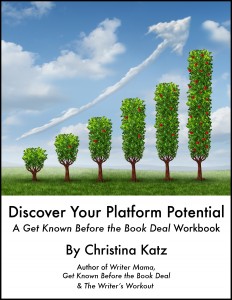 I have been part of a movement, a micro-publishing revolution, for many years now. And now that the topic is starting to get some mainstream press, I think it’s time to talk about what I have learned about micro-publishing thus far.
I have been part of a movement, a micro-publishing revolution, for many years now. And now that the topic is starting to get some mainstream press, I think it’s time to talk about what I have learned about micro-publishing thus far.
I would never have had the guts to get involved in micro-publishing if it had not been for the support and insights of my publishing mentor, Jane Friedman, who once upon a time, reassured me repeatedly (because I kept bugging her about it) that publishing my first self-published e-book, Author Mama, How I Became A Published Author & How You Can Too LINK would not be the end of my traditional publishing career.
What I know today, despite my anxieties back then, is micro-publishing does not have to be an all or nothing proposition. So that’s how I teach it.
I don’t want to be misunderstood or lumped in with others who use the term micro-publishing to mean things other than what I mean. There is no “stick it to the man” in my revolution. There is simply: empower the writers. This micro-publishing is more of an inner revolution than an outer revolution.
So let’s start with a definition. I hope that what I have to share about micro-publishing will be helpful to you. I would be most appreciative if you could give me credit for any ideas that you find helpful here or in any of my works on the topic.
Micro-publishing means that every person is a publisher. It takes away the whole idea of “us” vs. “them” that comes part and parcel with indie publishing and establishes that there is only Us, all of the people in the world, and we are all publishers. Therefore there is no “them,” since every individual, even publishing execs and agents and traditionally published authors, are also micro-publishers, at least potentially.
Every person has the right to micro-publish. Naturally this does not mean that every person who micro-publishes will do it well or gain respect by doing it. However, micro-publishing can be used to effectively accomplish any publishing or business goal, often more cheaply, quickly, and with considerably less stress and wear and tear on writers and readers.
Micro-publishing can either refer to the size of the publisher or the size of the published work or both. For me, when I use the term “micro-publishing,” I am referring to both the size of my publishing “house” and the length of the publications I create, which are shorter and more niche-oriented than traditional books. I am the publisher and I use my name, for example: Christina Katz, as the brand nexus. I don’t go to great lengths to disguise the fact that I am the publisher. I want my name at the center of everything I do in my writing career. Just claiming ownership, breaks a lot of dysfunctional patterns in self-publishing because it holds me, a person, accountable for what I say and do, rather than attempting to deflect accountability to a brand.
Publishing is on a spectrum now. Micro-published works come in every genre. They come in any publishing format. They also come in every price point under the sun. Micro-publishing can also more deeply and effectively serve specific types of readers rather than focusing on pleasing the masses. Micro-publishing covers topics in ways tradition publication would never bother to cover. Micro-publishing serves authors and readers across every increment of the content spectrum instead of merely serving readers of bestsellers.
Traditional publishers pursue the masses. Micro-publishers pursue likely readers. In micro-publishing the author becomes and remains the publisher and as such has complete freedom to make all business decisions related to the writing, production, and marketing of products within the laws of commerce and copyright. The micro-publisher can choose to personally distribute books or use book retailers such as Kindle Direct Publishing and CreateSpace.com to distribute products. Micro-publishing does not exclude booksellers, so long as they are open to curating quality books regardless of where they come from. It also does not preclude future traditional book deals for any micro-publisher, should the micro-publisher/writer aspire to go that route.
Micro-publishing is the grand equalizer. It is not against anything or anyone. It changes the playing field forever by inviting every player onto the field. It embraces the idea that every person is a writer and that every person has a voice and the potential to communicate in a compelling way with focus and effort. Micro-publishing has the potential to change publishing forever, and it already is. We should not fear micro-publishing and the changes it can bring, we should embrace and celebrate the potential of a micro-publishing movement.
Micro-publishing has the potential to revolutionize writing and publishing in ways that “indie-publishing” never could. Even in ways that the publishing industry never could. Perhaps the best news of all: failure today does not dictate failure tomorrow. Those who fail in the short run can regroup, reassess, and redeem themselves in readers’ eyes by doing better next time.
I teach and coach nonfiction writers to understand what micro-publishing means and put it to prosperous use creating and growing a micro-publishing businesses from scratch. So far, so good.
Anyone who wishes to participate in micro-publishing can. Quality will curate the long-term results of micro-publishing. All of the skills I have always taught: craft, selling, specializing, self-promotion, and sustained career satisfaction and growth play major roles in the success or failure of micro-publishers.
 I have been speaking on the topic of micro-publishing for over a year now and I will be speaking about it again this weekend in a workshop at Wordstock Festival 2012 in my workshop, Mailbox Full of Money: Find & Flex Your Most Prosperous Writing Ideas.
I have been speaking on the topic of micro-publishing for over a year now and I will be speaking about it again this weekend in a workshop at Wordstock Festival 2012 in my workshop, Mailbox Full of Money: Find & Flex Your Most Prosperous Writing Ideas.
I am also moderating a panel on Getting The Word Out: Self-marketing with other writer platform development thought leaders.
I have been teaching my Micro-publishing For Mom Writers class for over a year and it has been going very well. On October 25th, I am launching my first Become Your Own Imprint: For Serial Micro-publishers class.
I have a lot more to say about micro-publishing. But this is enough for today. There’s always tomorrow.
My question for you is: what is holding you back from micro-publishing starting today? When I spoke to writers last week, fear was the predominant reason for not micro-publishing. How about you? Are you micro-publishing? Has my work inspired you? How do you define micro-publishing?
Comments on this entry are closed.
Great definition of micropublishing from someone who knows both sides. Excellent job, Christina! I’ve always felt it was short-sighted for folks to think publishing was an either or proposition or that somehow, folks who self-published were not REAL authors. The eBook revolution and print-on-demand models have opened up so many more avenues for writers and readers and just like many of the other changes coming down the pike at this point in history, there’s no need to throw out the old models in order to welcome the new. Instead, it’s about choice and the freedom to pursue the right platform for your intended readers. I think it’s a most exciting time to be a writer (or reader for that matter) certainly in my lifetime.